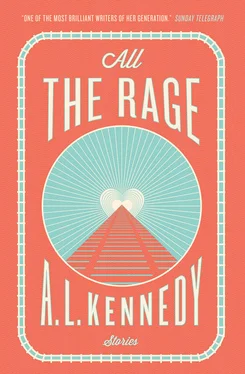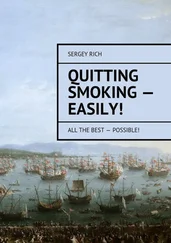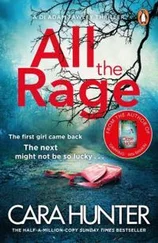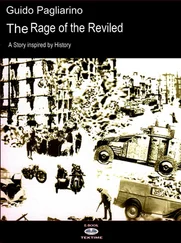This left her alone with the path again and steering for town, because there was nowhere else aside from genuine hiking routes that led into the southern hills, for which maps were available from Reception. She didn’t yet have a map, even though part of coming here had involved semi-plans for vigorous climbs and then worthwhile views accompanied by fruit, or bread and local sausage, regional cheese, decanted tap water from the metal bottle she’d packed with her boots and the largely superfluous compass intended to give her efforts an adventurous gloss. Every route was clearly and frequently signposted. There were inns every ten or twelve miles with rustic verandas and hygienic toilets. This was in no way a wilderness.
Possibly a wasteland. Probably. But not a wilderness.
In the pretty high street the pretty restaurants were crowded with lunching tourists. The tourists were not pretty, they were noisy and bewildering. Dorothy pressed open doors on clique after clique of happy tables, threaded herself under terrace parasols, found no comfortable space, found no space comfortable.
She wasn’t hungry, anyway. That banana. Sustaining.
And the sunlight was making her head throb.
In the end, it turned out she could sit on the dark side of a repellent municipal statue, because no one else wanted to be there. Or because no one else was currently aware of its — she might term them — evasive charms. Others had been here, however: at the base of the thing, in under a mossy confusion of mythical tails and feet, was a shallow trough. Small-denomination coins lay calmly winking and shivering under its water, where they’d presumably been thrown: moderate, circular hopes or thanks for good luck, coming safely back, going safely home, finding contentment. She trailed her hand into the trough, made ripples and then stilled them. She lifted her fingers and licked them. They had no particular flavour: no hint of metal, no hint of luck. They were just colder than her lips.
She kept the imprint — index finger, second finger — in between her tongue and the roof of her mouth and let it be a reason for not speaking when she got up and searched again for an empty seat, found one, pointed to a laminated menu where it listed types of coffee, then sipped and paused and sipped and paused and then mimed — thumb snibbed against index finger in a tiny beak — the scribble of a bill.
She paid.
She scraped back her chair with a motion which seemed to her childish and liable to suggest that her limbs were uncivilised and out of scale. She felt it must surely be visible that she didn’t share the range of interests and activities tucked up nicely inside the other visitors. She was trying to kill a day, make it go. Tomorrow she would have to try and kill another. It was making her feel brutal. It was worsening the headache.
Back at the hotel there would be, she was certain, no change and only another instalment of defeat.
She realised once more, kept realising, as if the information wouldn’t stick, realised again how likely it was that someone you’d given the option of leaving, someone you’d said was free to go, that someone might not discover a way to come back. They might not have been looking for one, might always have intended the space that they’ve spent away should become permanent. It wasn’t away for them any more — it was a different here . And someone might have got confused about who really left and what was lost and what broken and where the source of all the pain was; in absence, or presence, or alternative positions allowed to stay unexplored.
It was unclear.
And the streets were exhausted quickly, turned her constantly back to the unavoidable hotel.
A cool shower. A lie-down. Those wouldn’t be bad things. She could appreciate them. If you operated at that level, it was relatively easy to be content.
Still, the foyer was slightly vicious in the way that it tumbled her up to the lift, hungry and amused, tilted her downhill so she couldn’t help but rush to the room, to its door and the opening, the wide opening and the swing of revealed information: here was the wardrobe, here was the shuttered window and slivers of light, here was her case on the stand for cases, here was the bedside table, here was the bed.
Here was a different here and a different bed.
Here was the bed.
Here was her headache slowing, relenting so unexpectedly that it made her close to tearful.
Here was the chair with shoes beneath it, neat, and a more untidy slump of clothes: shirt, jeans, underpants, socks, the glimmer of a metal wristwatch also removed.
Here was the bed.
Here was the relenting bed.
‘I got tired.’
‘Yeah?’
‘Yeah.’
Here was the space around the bed, a little uncrossable and surprised.
‘Where were you?’
‘Where were you?’
Here was the bed where he was sitting up at the sound of her, sitting up like Sunday morning, sitting up like ages and ages ago when it made her smile. He had the covers tucked under his arms and he did not look as if he’d been sleeping, or resting since he arrived. He looked as if he’d decided the weight of talking to her would be eased if he was undressed, but now he was reconsidering.
Dorothy frowned and then stopped, because otherwise she would appear to be unhelpful. ‘I was in the town — village.’ She went to sit on the bed, but then didn’t. Since it was, to a degree, altered, she had no longer been there before and was nervous of it.
‘I did call when they told us the flight was. . I knew you’d have your phone off.’
‘I had my phone off.’
‘I know.’
They both understood that uncomfortable calls she has to answer make her turn off her phone pre-emptively. It was irritating. Neither of them would have denied that.
‘So I landed in this. . I’d forgotten how much I like it here. It was a good idea. Good idea. And thanks for letting me know. We can have some days. Really. Clever. I wouldn’t have thought. . but you did. .’ He lay down flat and blinked at the ceiling as if he were an invalid, an injured party, a boy overcome by his surroundings. ‘I had to catch a train. . They landed us in the wrong place. Then a train.’ He disappeared his arms under the quilt and tucked it neat to his chin from inside, from in the dark and hiding. ‘A train. .’ It was too hot to be so covered.
Dorothy turned, sat on the floor with the back of her head leaned against the mattress, against the modest shifts of motion that told her he was there. She told him, ‘I wish I hadn’t. . I wish I. .’
‘I didn’t want you to think that I wasn’t coming. I was going to. The pause wasn’t about that.’
She didn’t tell him anything.
‘You worry. You get anxious.’
She didn’t tell him anything.
‘And I get. .’
She didn’t tell him anything.
‘I worry, too. . You’ve seen and. . I’m. . I wanted you to know I was on my way.’
There was a small ruffle of bed sounds and he reached down and pressed her shoulder and the back of his hand was brushed untidily against her cheek and then he formed the touch again and moved through it again and concentrated and she could feel his purpose as tender, serious, frightened.
They had broken things, the pair of them. Unexpected damage had occurred, and they’d thought they would have managed better after their years of practice, but they hadn’t.
She leaned into his hand, kissed his fingers. ‘I got scared.’
‘I know.’ She heard him breathe out and pictured a column of something, some living trouble, pluming above his face. ‘And when you. . That was. . I don’t think. .’
This at the moment was peaceful. No breakages.
‘I wanted to hear your voice.’
Читать дальше












